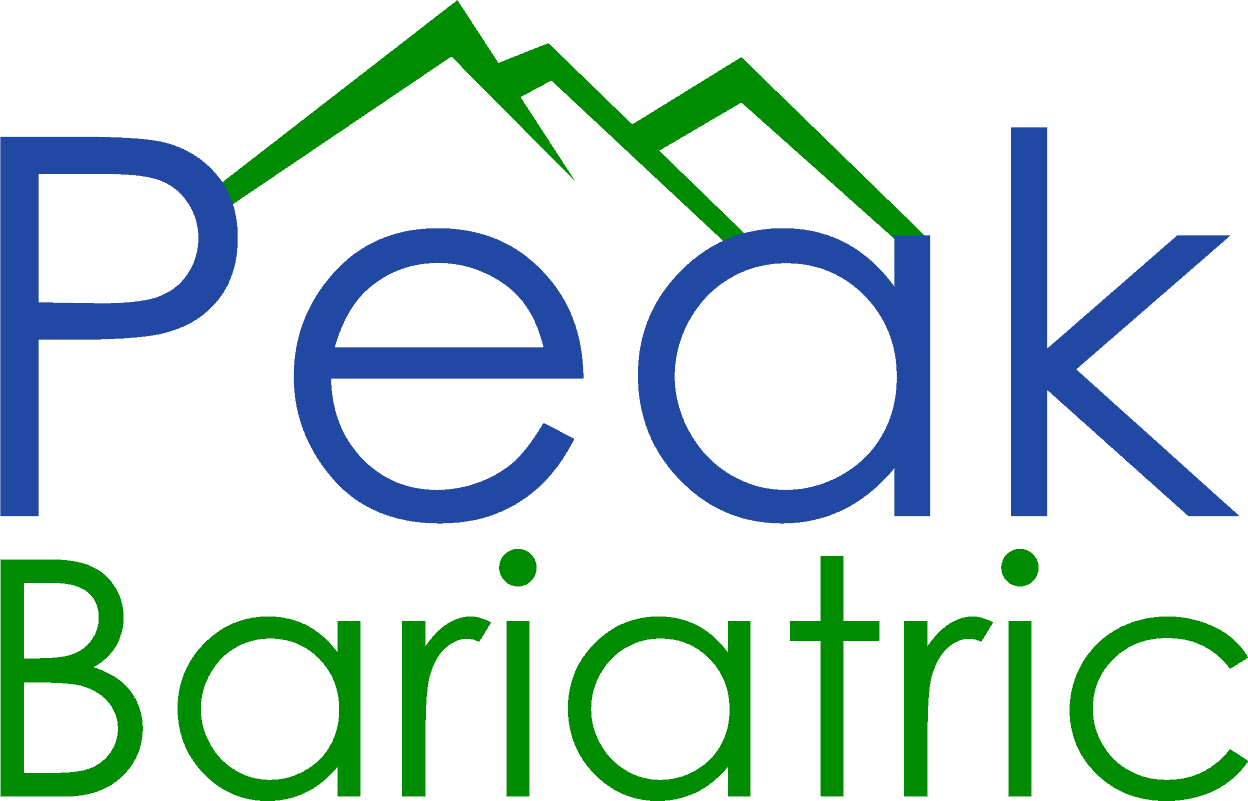Undergoing a bariatric procedure is a monumental decision that can transform your life in countless ways. Whether you opt for a gastric bypass or gastric sleeve, the journey towards improved health and vitality is a marathon, not a sprint. Postoperative visits form an integral part of this journey, ensuring that your recovery is on track and helping you navigate the challenges that may arise along the way.

Preparing for Your Postoperative Visits
The recovery period following a gastric bypass or sleeve gastrectomy varies among individuals. It’s therefore crucial to prepare adequately for your postoperative visits to ensure that you’re on the right path.
First, organize your medical documents. This includes your medical history, details of your procedure, and any prescriptions or recommendations given by your healthcare team.
Secondly, make a note of any symptoms or changes you’ve noticed since your operation. Did you experience any unusual pain or discomfort? Have there been any changes in your bowel movements or eating habits? All these details will help your surgeon better assess your recovery progress.
Thirdly, come prepared with questions for your surgeon. This could range from queries about your dietary plan, courtesy of our comprehensive guide on nutrition post gastric bypass, to overcoming common challenges after gastric bypass.
What to Expect During Your Postoperative Visit
During your postoperative visit, your surgeon will evaluate your physical recovery, nutritional intake, and overall well-being. It’s also the perfect time to discuss any concerns you might have, from maintaining a healthy lifestyle to your mental and emotional health. Remember, understanding the emotional aspects of bariatric surgery is just as crucial as physical recovery.
Your visit may start with routine medical checks, such as weight, blood pressure, and other relevant vitals. Then, your surgeon may assess your surgical wounds, ensuring they’re healing correctly, and there’s no sign of infection.
Next, your surgeon may discuss your current diet and the progression towards normal food intake. Given the alterations made to your digestive system, it’s paramount to adhere to the recommended dietary guidelines to ensure your body is getting the necessary nutrients and avoid complications. We’ve put together a comprehensive guide to healthy dining out, making it easy for you to stay on track while enjoying social activities.
Moreover, your healthcare team will want to know about your level of physical activity. Regular exercise is an essential part of a successful bariatric journey, enhancing weight loss, improving mood, and promoting overall health. Whether you’re taking walks around the block or have started a more structured workout regime, it’s essential to communicate this during your visit.
One essential point to note is the need to maintain open communication with your surgeon. They’re there to guide you on this journey, so make sure to express any concerns or questions you might have. Together, you can devise strategies to overcome weight loss plateaus, manage emotional eating, or deal with other challenges you might face.
Now, you’ve crossed the first hurdle of your post-op journey – the initial consultation. You’ve obtained all the necessary medical clearances and are recovering from your gastric bypass or gastric sleeve surgery. But the journey doesn’t stop there; regular post-op visits are just as critical for your long-term weight loss success.
Understanding the Purpose of Post-Op Visits
Post-op visits serve as critical checkpoints on your bariatric journey. These visits allow your healthcare team to monitor your recovery process, detect potential complications early, and ensure you are following the prescribed nutrition and diet guidelines for your health and wellbeing.
During these visits, your weight loss progress will be tracked, adjustments to your meal plans will be made if necessary, and additional tests may be conducted to monitor your body’s response to the surgery. Remember, your primary goal should be achieving long-term weight maintenance, and these post-op visits are integral to attaining that goal.
__Remember:__
– Prepare for each visit
– Be honest with your healthcare provider
– Maintain a health journal
– Follow prescribed guidelines
– Take care of your emotional health
Addressing Nutrition and Diet
You must remember that the surgery is not a solution in itself, but a tool to help you make significant lifestyle changes. As such, it’s crucial to adhere strictly to the nutritional guidelines for gastric bypass patients, to ensure that you are fueling your body with the right nutrients in the right proportions.
Expect to discuss your diet extensively during your post-op visits. Your nutritionist or dietitian may ask about your daily eating habits, including your meal frequency, portions, and the types of food you consume. Based on this feedback, they may provide recommendations for dietary adjustments or enhancements.
In this regard, it can be beneficial to familiarize yourself with strategies for healthy dining out, especially if your job or lifestyle requires you to eat out often. Learning how to make healthier food choices, even when dining out, can greatly contribute to your post-surgery success.
The Role of Physical Activity
Maintaining an active lifestyle post-surgery is key to enhancing the effects of the surgery and promoting overall health. Discuss your physical activity levels with your healthcare provider during these visits. Together, you can create a feasible and effective exercise plan, one that complements your nutritional plan and supports your weight loss goals.
Should you encounter any physical challenges or issues, do not hesitate to share these during your post-op visits. By overcoming common challenges after gastric bypass, you can ensure that your path to long-term weight loss stays clear.
Considering Psychological and Emotional Health
Undergoing bariatric surgery is not just a physical journey but an emotional one as well. Your healthcare team recognizes the importance of mental health in your recovery and long-term success. As such, part of your post-op visits will be dedicated to assessing your psychological wellbeing.
The emotional aspects of gastric bypass are complex and can sometimes be overwhelming. If you feel comfortable, share your feelings and concerns with your healthcare provider. They can provide advice or direct you to relevant resources, such as support groups, where you can find further help.
Finding a support and community that understands your journey can make all the difference. Remember, you’re not alone in this journey, and there’s always help available if you need it.
Post-op visits are a collaborative effort between you and your healthcare team. While your team will provide medical advice and monitor your progress, you also play a significant role in these meetings. Here’s how you can make the most of your post-op visits:
1. Come Prepared
Before your visit, prepare a list of questions or concerns that you have. This could be about your diet, physical activities, emotional health, or anything else related to your post-surgery journey. Coming prepared ensures that you address all your concerns during the visit and helps you make the most of the limited time you have with your healthcare provider.
2. Be Open and Honest
Honesty is essential during your post-op visits. It’s important to be open about any difficulties you’re facing, be it sticking to your diet plan, exercising regularly, or dealing with emotional issues. This allows your healthcare team to provide appropriate support and solutions.
3. Keep a Health Journal
Maintaining a health journal can be highly beneficial. It can include records of your daily meals, physical activities, emotions, or any symptoms you experience. Not only will this help you understand your body and emotions better, but it will also provide your healthcare team with valuable insights into your health and wellbeing.
4. Follow Prescribed Guidelines
Follow all dietary and physical activity guidelines prescribed by your healthcare team. Remember, these guidelines are designed to ensure you heal properly and achieve your weight loss goals.
5. Take Care of Your Emotional Health
Don’t ignore your emotional health. If you’re struggling with emotional issues, seek help. Your healthcare provider can guide you to appropriate resources, such as therapists or support groups.
The Journey Continues: Your Long-Term Health Post-Op
Undergoing bariatric surgery is a significant step in your weight loss journey, but it’s just the beginning. The real journey lies in the lifestyle changes you make post-surgery, and your post-op visits are there to support you along this journey.
At Peak Bariatric, we’re committed to supporting you through every step of your post-op journey. By providing you with regular post-op visits, we aim to ensure your long-term health and wellbeing. Whether it’s tracking your weight loss progress, adjusting your diet plan, discussing your exercise regimen, or providing emotional support, we’re here to help you succeed.
Remember, this journey is yours, and you have the power to shape its course. With commitment, dedication, and the right support, you can achieve your weight loss goals and lead a healthier, happier life.
Key Takeaways
- Post-op visits are crucial parts of your recovery and long-term success after bariatric surgery.
- Prepare for each visit by creating a list of questions or concerns you have.
- Be open and honest with your healthcare provider about any difficulties or struggles you’re experiencing.
- Keep a health journal to record meals, physical activity, emotions, and any symptoms you may be experiencing.
- Adhere to the guidelines and recommendations provided by your healthcare team.
- Don’t ignore your emotional health; if you’re struggling, seek professional help.
- Your journey to health continues well after the surgery, and post-op visits are an integral part of it.
- At Peak Bariatric, the team is committed to supporting you throughout your post-op journey, providing regular visits to track your progress and adjust your plans as necessary.
- With dedication, commitment, and the right support, you can achieve your weight loss goals and lead a healthier life.






